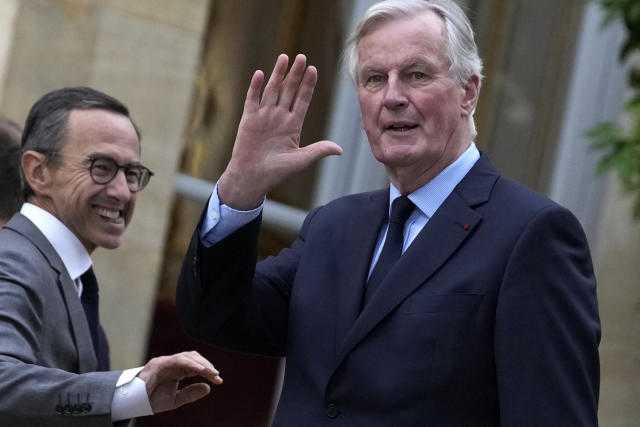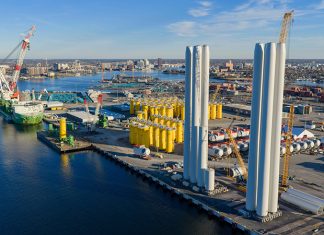By Diane Jeante and Sylvie Corbet
Associated Press
PARIS (AP) — France’s new government is set to take a hardline approach to migration issues as key officials have pledged to significantly reduce the number of people entering and staying illegally in the country.
After calling for snap legislative elections in June, President Emmanuel Macron appointed Prime Minister Michel Barnier, a veteran conservative from The Republicans party, hoping the Brexit negotiator would work with the divided legislature to end the political turmoil that has upended French politics in recent months.
The Barnier government — dominated by conservatives and centrists— does not have a majority in parliament and efforts to pass any new legislation are bound to be fought, and potentially blocked. The National Assembly is now split between three major political blocs: the left-wing New Popular Front leftist coalition, Macron’s centrist allies — who made a deal with the conservatives — and the far-right National Rally party, the largest single party in the new assembly.
The new prime minister will outline his priorities in a general policy speech scheduled for Tuesday at the National Assembly.
In recent televised interviews, Barnier criticized French borders as “sieves” and expressed concern that “migratory flows” were “not under control.” He promised to “limit immigration,” citing measures taken by neighboring countries like Germany, which expanded controls at all land borders earlier this month.
Critics have denounced Barnier’s government immigration stance as strongly influenced by the National Rally’s proposals, as its survival depends on the party’s goodwill.
Far-right and left-wing lawmakers can force the whole government to resign on condition they agree on a no-confidence vote.
Marine Le Pen, the National Rally’s leading figure, said she would not seek to bring down the new government for now, waiting to see its initial “acts.” In a recent interview with La Tribune-Dimanche newspaper, she said: “It’s undeniable that Michel Barnier seems to have, on migration, the same assessment as ours.”
A new interior minister to reign in immigration
Barnier’s hardline approach is reflected in the appointment of Bruno Retailleau, a fellow conservative known for his tough rhetoric on migrants, as the interior minister.
Retailleau shared this week his intention to reign in immigration. He said he would seek to “reform” France’s state medical assistance that covers health care expenses for undocumented migrants. He has argued for years that it should be strictly limited to minimum emergency care.
Eight former health ministers from the left, center and right signed a column in French newspaper Le Monde to call on the government to maintain the state medical assistance, saying limiting it would put France’s healthcare system “under increased pressure” because it would lead “to taking care of people later” when their condition is “more serious” and “more expensive.”
Retailleau also said he would try to toughen up random border controls, bring back a law that sanctioned with fines or prison sentences those caught entering French territory illegally, and seek deals with North African nations such as Morocco so that those countries retain migrants before they even set foot in France.
Some measures may not request a new law
Some proposals to stem migration could prove difficult to implement as they need to go through the already divided parliament while others, such as sanctioning migrants who have entered France illegally, appear to go against European rulings.
Barnier, suggested while campaigning, in vain, to be his party’s presidential candidate in 2022 that France should find ways to bypass rulings from the Court of Justice of the European Union and the European Court of Human Rights.
Still, the prime minister and Retailleau argue they can still take action without passing new legislation, such as decrees and instructions to national and local administrations in charge of implementing migration policies.
















